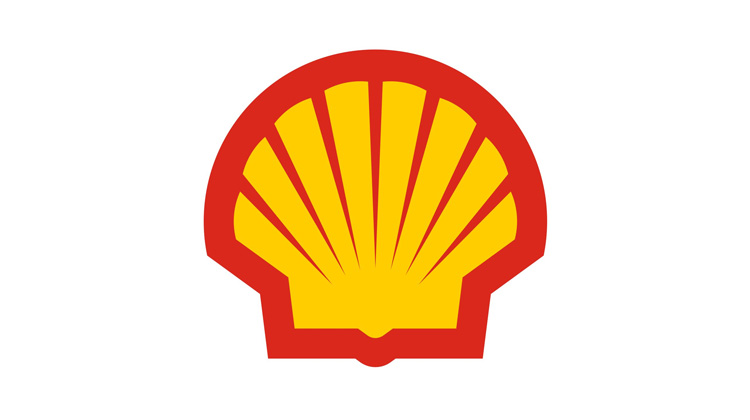The Niger Delta, once a thriving ecosystem, has been ravaged by decades of oil pollution, leaving communities fighting for survival. As the UK High Court trial against Shell kicks off, the world watches with bated breath. Can a corporation be held accountable for environmental destruction that violates fundamental human rights? The outcome of this landmark case could redefine corporate responsibility and give a voice to those silenced by pollution.
Imagine a land drowning in oil, where livelihoods vanish, and sickness reigns. This is the Niger Delta, where decades of pollution have turned paradise into a wasteland and where communities fight for survival against environmental destruction.
Now, a landmark UK High Court trial pits the Niger Delta against Shell, a David-and-Goliath battle for justice. This is not just about oil spills; it is about human rights. Can a corporation be held accountable for ravaging an environment and, in doing so, violating the fundamental rights of its people? Could the outcome redefine corporate responsibility and finally give a voice to those silenced by pollution? The world is watching.
In 1956, Oloibiri marked Nigeria’s first oil discovery, initiating its dependence on crude oil. As far back as the 1970s, multinationals like Shell had begun causing widespread pollution, leading to ecological disasters, health crises, and economic ruin for Niger Delta residents. Reports indicated that the Niger Delta experienced over 6,000 oil spills between 1976 and 1996 alone, releasing about 2 million barrels of crude oil into the environment. Hence, in the 1990s, activist Ken Saro-Wiwa led protests against the damage. He and eight others, the Ogoni Nine, were executed in 1995 after a trial that sparked international condemnation.
In 2005, Gbemre, representing the Niger Delta Iwherekan community, sued Shell for unceasing gas flaring, arguing that it violated rights to life, dignity, and a clean environment. In 2022, Shell agreed to pay $16m to four Nigerian farmers and their communities to compensate for damage allegedly caused by leaks in its oil pipelines.
The Bille and Ogale communities, with around 13,000 members, are now suing Shell over another extensive oil pollution. They argue that Shell failed to prevent oil theft and illegal refining and neglected proper clean-up, violating their rights to a healthy environment.
Conversely, Shell attributes much of the pollution to criminal activity. The ongoing UK High Court trial, along with previous cases and settlements such as the $16m payout and the Bodo community settlement of £55m, represents a pivotal moment in holding corporations accountable for environmental degradation and alleged human rights violations in the Niger Delta.
The environmental devastation caused by oil spills in the Niger Delta has far-reaching implications beyond ecological damage. Pollution of rivers and drinking water sources has rendered them undrinkable, depriving communities of access to this essential resource. Reports also show that oil spills have led to significant ecological damage, including the destruction of mangrove forests and other ecosystems, with an estimated 5-10 per cent affected.
This leads to another critical violation: the right to health. The rise in respiratory diseases, cancer, and continuous exposure to toxic substances among residents is directly linked to oil spills and gas flaring. The situation is exacerbated by the lack of adequate healthcare facilities and resources to address these emerging health problems.
Furthermore, the destruction of fishing and farming activities due to oil spills severely impacts the right to livelihood. As oil contamination devastates local fisheries and agricultural lands, communities face increasing economic hardship, pushing them deeper into poverty.
Organisations like Amnesty International highlight these issues as part of broader human rights violations linked directly or indirectly with environmental degradation caused by oil activities in the Niger Delta region.
Finally, the ongoing gas flaring and oil spills create an uninhabitable environment, violating the right to a safe environment. The degradation of the ecosystem not only harms current residents but also threatens future generations’ ability to live in a healthy and sustainable habitat.
The UNEP Environmental Assessment Report released in August 2011 provides comprehensive evidence of severe environmental contamination in Ogoniland. It highlights extensive pollution of soil and groundwater, with drinking water contaminated with benzene at levels over 900 times above WHO guidelines. The report emphasises the need for immediate action to address health risks and restore the environment, noting that clean-up efforts could take up to 30 years.
The environmental catastrophe in the Niger Delta is not solely the fault of multinational corporations; the Nigerian government bears significant responsibility, marked by a disheartening failure to protect its citizens and their environment. Despite a plethora of environmental regulations and standards, their enforcement remains woefully inadequate, creating a permissive atmosphere for ecological devastation. This lack of stringent enforcement allows oil companies to exploit loopholes and brazenly disregard environmental laws, prioritising profit over the well-being of the communities they operate in.
Corruption and complicity have further deepened the crisis. The government’s lack of political will to hold oil companies accountable has fostered a culture of impunity. It has been alleged that by manipulating the Land Use Act, oil companies have appropriated peasant lands without adequate compensation.
Although Nigerian laws state that oil firms are not liable to pay compensation in the event of spills from sabotage, they are still expected to clean up the environment. On the other hand, agencies such as the National Environmental Standards and Regulations Enforcement Agency and the National Oil Spill Detection and Response Agency have had minimal impact on the lives of those directly affected by oil production.
The neglect of affected communities is perhaps the most devastating aspect of the government’s role. Despite bearing the brunt of environmental damage, these communities receive inadequate relief or compensation for their losses. This neglect perpetuates a cycle of poverty and underdevelopment as families struggle to rebuild their lives in the wake of ecological disaster.
The trial, underway since February 13, 2025, is expected to last until March 7, 2025. During this period, the court will determine whether a private company’s oil pollution constitutes a human rights breach and if Shell is liable for pipeline damage caused by theft or illegal refining.
A fundamental shift in governance is needed, one that prioritises environmental protection, holds corporations accountable and ensures that affected communities receive the support and justice they deserve. Only then can the Niger Delta begin to heal from the wounds of decades of environmental destruction.
International legal institutions must recognise environmental destruction as a pressing human rights issue. The International Criminal Court and the International Court of Justice should take an active role in addressing these violations.
As the trial progresses, it serves as a reminder that accountability is not just a local issue; it is a global imperative. Justice delayed is justice denied. The people of the Niger Delta have suffered for too long. They deserve action, not just legal battles. Effective remedies, environmental restoration, and the protection of human rights must be prioritised to ensure a sustainable future for the region.





